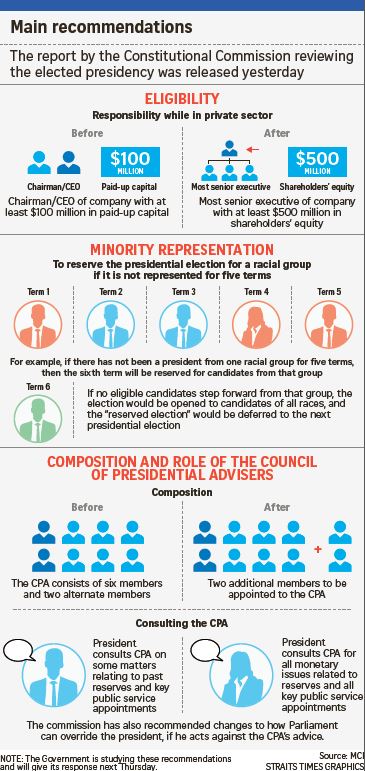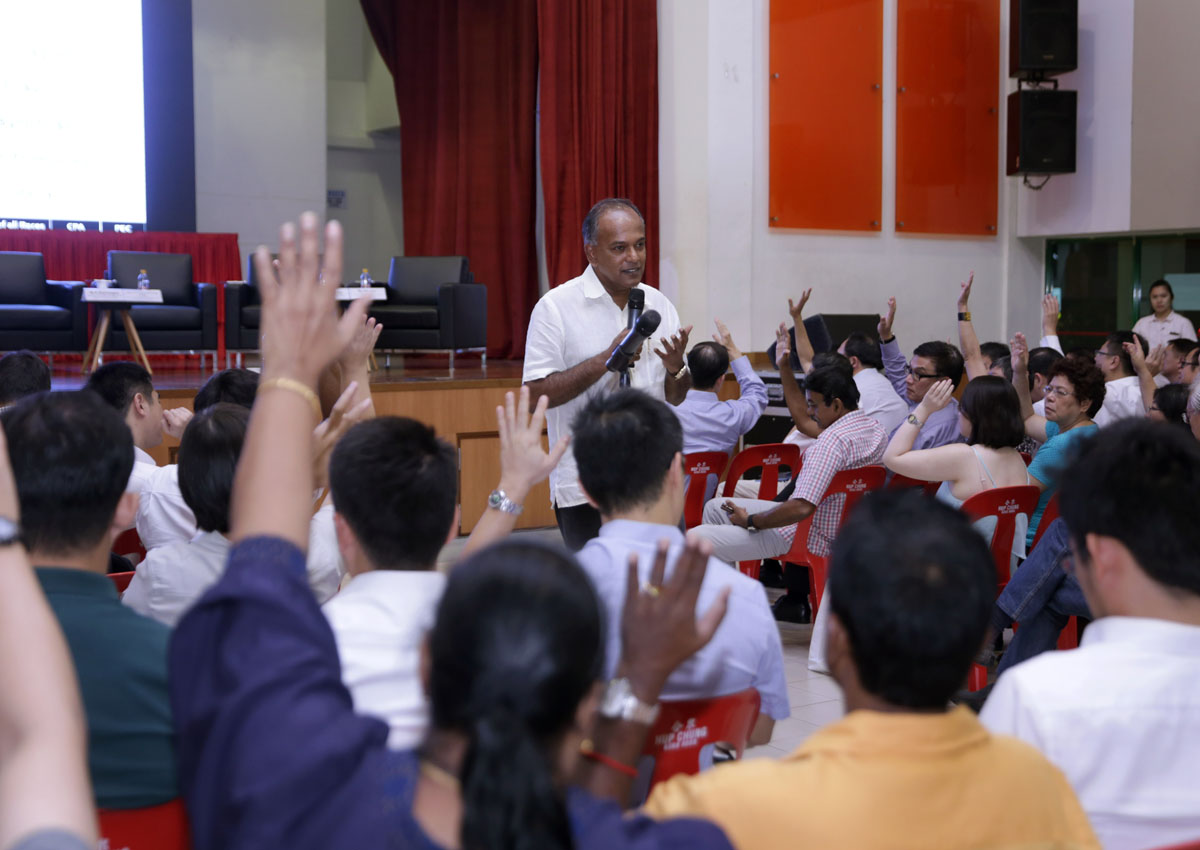The president must himself have a popular mandate to say no to certain actions by an elected government, Law Minister K. Shanmugam said yesterday.
A panel that reviewed the elected presidency had floated the idea of reverting to an appointed president in its report. It suggested having a group of appointed experts assume the custodial role of safeguarding the reserves and the integrity of the public service.
But Mr Shanmugam pointed out that the Constitutional Commission had also acknowledged that the head of state cannot veto government initiatives if he is not elected.
This is why its proposed group of appointed experts can only delay, but not block, government action – unlike the elected president.
“You have to ask yourself, do you want to give real power to an individual or a group. If you want to give real power then they have to be elected,” he told reporters on the sidelines of a dialogue on proposed changes to the elected presidency with 600 grassroots leaders from the North West District.
Reporters were allowed into the session for the first hour but the second half was closed-door.
During the dialogue, one participant cited the commission’s suggestion of an appointed presidency, and asked if the Government would consider doing away with the presidential election.
Mr Shanmugam made clear the Government has not stated its view on the commission’s recommendations, but it was unlikely that presidential elections will be abolished.
Singaporeans will also likely be displeased to lose their right to vote for their president, he added.
“Every single one of you probably voted in the 2011 Presidential Election. If I now come and tell you, you cannot vote any more, would you be happy? You will think the Government is trying to be funny,” he said.
A show of hands by the audience later to a question posed by Mr Shanmugam showed that most believed that the president should continue to be elected.
There was also broad agreement from the audience that potential candidates have to meet a set of eligibility criteria, and that the criteria must remain relevant and should be reviewed periodically.
But participants were split on the need for a proposal to ensure a minority president from time to time.
The commission had recommended that if there is no president from a particular racial group for five continuous terms, the next presidential election should be reserved for candidates from that group.
Asked by reporters about this reaction from the audience, Mr Shanmugam noted that the commission’s report was just released to the public on Wednesday , and people will need time to understand its nuances and clear up misunderstandings.
“Some people were saying it will affect meritocracy. As the commission made clear, whichever race the candidate is from, they have got to fulfil the same criteria. So there is no question of lowering the criteria for a particular race,” he said.
Also, if people of all races are elected from time to time, the provision to reserve an election for a particular race will never be invoked, he added.
Meanwhile, in a separate interview with Channel NewsAsia’s Talking Point broadcast last night, Mr Shanmugam also highlighted the symbolic role of the nation’s highest office.
“The president represents the entire nation… If you accept that, then I think it’s only right that we have presidents from the different races at certain frequencies,” he said.

ziliang@sph.com.sg

This article was first published on September 9, 2016.
Get a copy of The Straits Times or go to straitstimes.com for more stories.



























































































